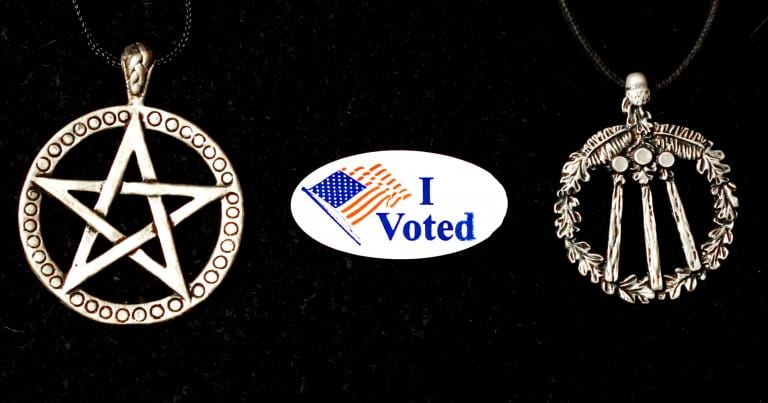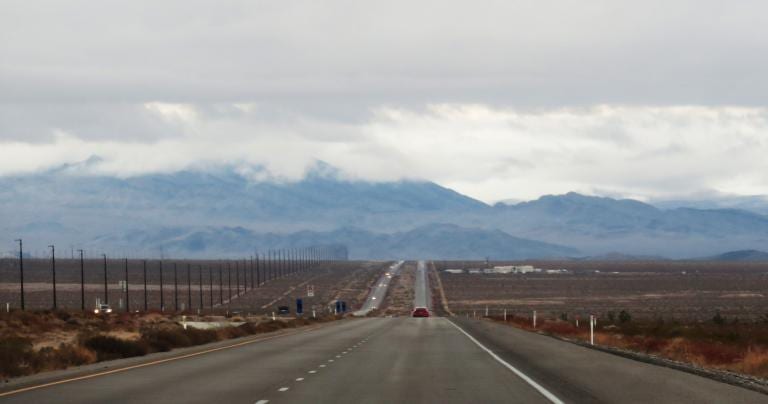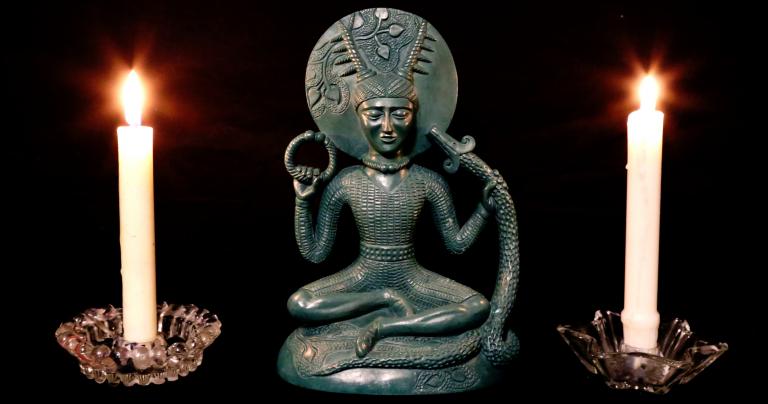It’s time for another round of Conversations Under the Oaks. This time we begin with two questions about Pagans and politics.
Is it an accurate assumption that Pagans lean toward being politically liberal? I would think yes, since practicing a minority religion would lead one to be more tolerant and accepting of diversity, particularly in religious freedom arena.
Your phrasing of the question is very appropriate – Pagans “lean toward” the liberal side of politics.
I have no hard data. Someone mentioned a study that said 80% of Pagans are liberals. After over 15 years in the Pagan community, that seems about right. We tend to vote Democratic, we support progressive economic policies, and we’re very socially liberal. Many of us would vote for Green Party candidates if they were viable – some vote for them anyway. Some are communists, though more from an anarchist model than from any favorable view of Soviet-style dictatorship.
But 80% is not 100%. There’s a small but significant libertarian current in Paganism – people who support marriage equality, decriminalization of drugs and sex work, and basically want government out of people’s personal lives; but who also want low taxes, minimal public services, and a low – or no – social safety net.
There are a few Pagan Trump supporters. There are probably more than we think, they’re just afraid to admit it in public. Some of them didn’t like Hillary, while others are nationalists who believed Trump really would restore some kind of greatness to the country.
There are fascists in the Pagan movement. Some are obvious and some are not. In 2016 Rhyd Wildermuth wrote a piece for Gods & Radicals listing some of the ideas and personalities in the “New Right.” That essay was overly broad and implicated many Pagan traditions that have no connection to fascism (my rebuttal is here) but its core presentation of facts was and still is accurate and useful.
The days when Paganism (and to a lesser extent, witchcraft) was mostly a thing of the well-educated middle class are over. Today the movement draws from all segments of society, so it should come as no surprise we have political opinions from across the spectrum. Our challenge is to be welcoming to as many political viewpoints as we can, while still knowing where to draw the line.
And that brings us to a related question from a different reader.
Your recent article enjoined your readers to “vote with their hearts” in the Democratic primaries. How does your Paganism interact with your politics? Do you have any advice on how to manage these two things and the connections between them?
There is so much misunderstanding about the relationship between religion and politics in our wider society, and in the Pagan movement.
Religion is where we find our highest values: the inherent worth and dignity of every person, the interconnectedness of all life, the key virtues of hospitality and reciprocity, and much more.
Politics is the collective expression of our values.
The first problem comes when those with political power try to use that power to advance their religion and its doctrines and customs. Things like Christian holidays as public holidays, Christian prayer (or really, any prayer) at public gatherings, restrictions on women’s rights, and legal attacks on LGBTQ people.
You can never fully separate religion and politics. My Pagan religious belief that the Earth is sacred inspires me to support candidates and policies that will reduce pollution, eliminate human-caused extinctions, and promote sustainable farming and energy production. But in the public square it is my responsibility to articulate solid secular reasons for these things and not just claim “the Earth is sacred therefore we must outlaw fracking.” That’s no better than fundamentalists who argue “the Bible says…”
The second problem is that political disagreements can be, well, disagreeable. And so too many Pagans (and other people) say “don’t bring politics into my religion.”
No matter what you intend to say, “I don’t want to discuss politics” means “I support the status quo.” Because if you don’t at least talk about the challenges we face, nothing will ever change. We can’t afford to “just don’t talk about it.” We have to learn how to have difficult conversations about difficult matters.
The third problem occurs when people become so involved with politics they lose connection with their religion. Climate change is important – so is honoring your Gods and ancestors. Universal health care is important – so is daily spiritual practice. Voting and working for political change is important – so is meditation and working for magical change.
If you find yourself saying “but this is so much more important than that” (however “this” and “that” align for you) you’ve missed the point. Both are important. Different people may prioritize one or the other, but as individuals and as a society, we need both.
Politics is no substitute for devotion. Devotion is no substitute for political action.
So, how do I manage this?
First, by doing both. You can see this by scrolling through the blog. Most times I write about religion and spirituality. Sometimes I write about politics. Sometimes I write about their intersection and overlap, as with the Tower Time posts.
Second, by trying to keep political zealotry to a minimum. All political philosophies, systems, and candidates have their strengths and weaknesses – often what we choose is less important than how we implement it.
Most contentious issues are complicated and we can agree to disagree, up to a point. For example, I favor very liberal immigration policies because I believe hospitality demands we open our doors to those in need. If you prefer restricted immigration policies to protect the jobs and wages of the American poor, I respect that.
However, if you want to keep people out of the country because they don’t look or sound like you, and especially if you want to treat refugees like criminals, separate families, and put kids in cages and camps, I do not respect your opinion and I’m going to have a very hard time standing in circle with you.
That’s the third thing I do – draw boundaries with careful consideration, but draw them where they’re necessary.
Finally, there’s another line to be drawn – a line between being a responsible and engaged citizen on one hand, and being obsessed with politics on the other. If we become obsessed with politics – particularly as a spectator – we put our faith in the wrong thing.
You may think government is strong, but Nature is stronger. You may think politics is strong, but the human spirit is stronger. You may think the law is strong, but magic is stronger.
Who can stand against us when we align ourselves with the currents of Nature? Who can stand against us when we ally ourselves with all our Neighbors in honor and respect? Who can stand against us when rank upon rank of mighty ancestors surround us? And who can stand against us when we ally ourselves with the Gods?
We are living in Tower Time. We are living in the last throes of Empire, and those in power are not going quietly. We may not be able to change the system, but we can make the system irrelevant in our lives and in the lives of those around us.
Alone, we will be trampled.
Together, who can stand against us?





















